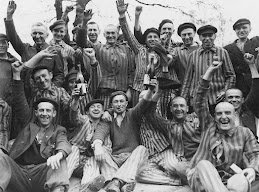GEORGIA VS RUSSIA: THE CRISIS UNVEILED
Thousands of demonstrators have been taking to the streets of Georgia’s capital starting from 20th of June, protesting against the Russian influence in the State. These have been the largest demonstrations experienced by Georgians in 7 years. People rushed out on the streets and in front of the Parliament, shouting “Russia is an occupier” and burning photos of Russian President Vladimir Putin. Police responded by firing tear gas and rubber bullets and arresting 300 people. More than 240 people were injured. As predictable, the violence has made relations between the two countries worse.
In particular, three are the reasons why the protests sparked:
1) To demand that Russia removes its forces from South Ossetia and Abkhazia.
2) To call for the Georgian Interior Minister, Giorgi Gakharia, to resign, since he allowed the Russian lawmaker Sergey Gavrilov, a member of the Russian Communist Party, to take part in the Interparliamentary Assembly on Orthodoxy (IAO). Gavrilov addressed delegates in Russia, angering politicians and Georgians who are opposed to Moscow's presence in the country.
3) To protest against Putin’s decision to cancel all flights from Russia to Georgia starting from July 8. The strategy is simple: hitting Georgia’s booming tourist industry and to “ensure the national security of the Russian Federation and to protect its citizens from criminal and other illegal actions.” That same day, the Russian trading standards body, Rospotrebnadzor, said in a statement it was introducing tighter checks on wine imports from Georgia (which is 70% of Georgian exports). To further justify its actions, Russia has denounced an attack on Vladimir Putin by a Georgian TV host, Giorgi Gabunia, who insulted Putin and his dead mother on live television.
An overview of Russian-Georgian relationship: Georgia, which is a US ally, fought and lost a short war against Moscow in 2008. The tension started when the Georgian president at the time, Mikheil Saakashvili, sent troops to regain control over South Ossetia, ruled by a separatists group backed by Russia. The former Soviet Union responded by moving tanks and soldiers through South Ossetia and advancing farther into Georgian territory. When the fighting ended, Russia's military pulled back only as far as South Ossetia, which it sees as an independent state. Moreover, Georgia has ambitions to join the European Union and Nato, making Russia uncomfortable with the idea that its immediate neighbors are turning to its enemies and trying to be more independent from Russian influence. Since 2012, the government has been trying to restore relations with Putin, but, according to a 2018 survey by the Center for Insights in Survey Research, 85% of Georgians consider Russia a “political threat.”
References:
https://www.euronews.com/2019/06/30/thousands-protest-in-georgia-calling-for-an-end-to-russian-occupation
https://www.nytimes.com/2019/06/22/world/europe/georgia-russia-protests.html
https://edition.cnn.com/2019/06/20/europe/georgia-protests-intl/index.html
https://www.bbc.com/news/world-europe-48710042
https://www.rferl.org/a/protests-in-georgia-reach-two-week-milestone/30036630.html
https://www.rferl.org/a/georgian-protests-continue-in-wake-of-russian-lawmaker-s-visit/30040703.html
https://www.theguardian.com/world/2019/jul/08/russia-condemns-georgian-tv-host-attack-on-filthy-invader-vladimir-putin
https://time.com/5615726/anti-russia-protests-georgia/


Comments
Post a Comment